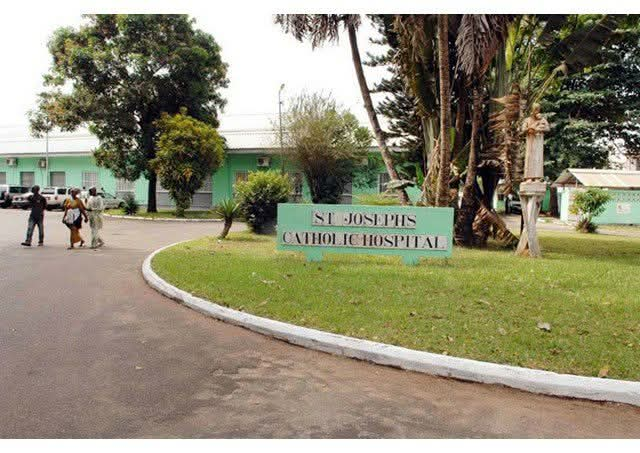The St. Joseph Catholic Hospital in Monrovia, Liberia, has been found culpable in the death of 21-year-old student Isaiah Benedicto Williams, and subsequently fined US$30,000 in damages. Williams died on January 3, 2025, during a surgical procedure at the hospital, an incident that sparked outrage and demands for justice from the deceased’s family, who suspected wrongful medication and a potential overdose as the cause of death. Williams, a recent high school graduate, was preparing to travel to Rwanda to continue his education. The Liberia Medical and Dental Council (LMDC) launched a thorough investigation into the circumstances surrounding Williams’ death, culminating in a detailed report released on January 17, 2025.
The LMDC’s investigation unearthed a series of critical failures and procedural breaches at St. Joseph Catholic Hospital that directly contributed to Williams’ demise. Central to their findings was the hospital’s lack of functioning anesthesia equipment. Dr. Benetta Collins Andrew, Chairperson of the LMDC, stated unequivocally that the hospital did not possess a single operational anesthesia machine, a fundamental requirement for conducting surgeries safely. This egregious oversight placed Williams at immediate risk and ultimately proved fatal. Compounding this failure was the discovery that the surgeon in charge, Dr. Thadee Ngoy-Mulume, was practicing with an expired license, further demonstrating a disregard for established medical protocols within the hospital.
The LMDC’s investigation meticulously reconstructed the events leading up to Williams’ death. The procedure began with the administration of anesthesia by a nurse anesthetist, a process that quickly resulted in severe complications for the patient. Dr. Ngoy, despite being the only CPR-trained individual present, was unable to effectively resuscitate Williams due to the non-functional equipment in the operating theater. The combination of faulty equipment, an expired medical license, and a nurse administering anesthesia outside her scope of practice created a cascade of failures that tragically resulted in the young student’s death.
The investigation also highlighted deficiencies in the hospital’s administrative procedures. The informed consent form, a critical document outlining the risks and potential complications of a surgical procedure, was found to be inadequately documented in Williams’ case. Specifically, the form lacked clarity regarding the possibility of death or cardiac arrest, crucial information that should have been explicitly addressed given the nature of the procedure. This lapse further underscored the hospital’s systemic negligence and disregard for patient safety.
The LMDC’s findings, corroborated by Liberian pathologists Dr. Benedict Kolee and Dr. Zoebon Kpadeh following an examination of Williams’ body, painted a grim picture of medical malpractice and negligence. The hospital was held directly responsible for Williams’ death, the result of a confluence of factors, including a lack of standard operating procedures, malfunctioning equipment, and the involvement of a doctor practicing with an expired license. The US$30,000 fine levied against the hospital serves as a penalty for their negligence and aims to hold them accountable for the tragic loss of a young life full of promise.
Beyond the financial penalty imposed on the hospital, the LMDC took further action against the medical professionals involved. Dr. Thadee Ngoy-Mulume was fined US$1,500 and required to fully register his license before resuming medical practice in Liberia. Nurse Miatta Dahn, who administered the anesthesia, received a six-month suspension and was mandated to work under the supervision of a designated anesthesiologist during that period. These disciplinary measures underscore the LMDC’s commitment to upholding medical standards and ensuring accountability for medical professionals whose actions deviate from established protocols and endanger patient lives. The tragic case of Isaiah Benedicto Williams serves as a stark reminder of the importance of adhering to medical best practices and maintaining functional equipment to safeguard patient safety and prevent avoidable loss of life.


